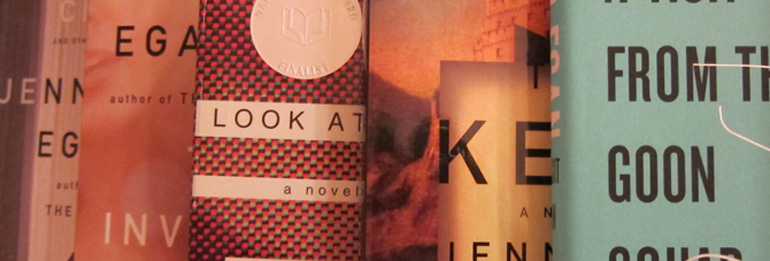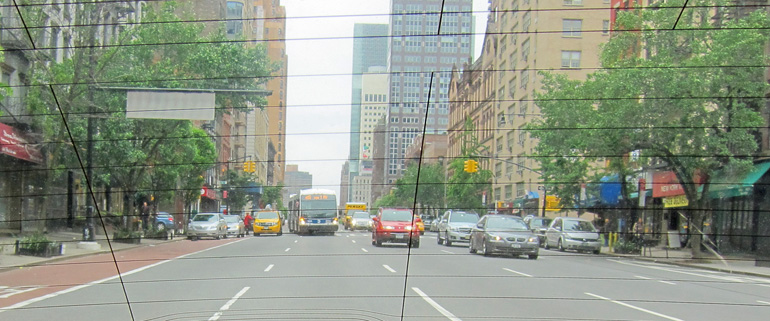
“Being Good,” the fourth chapter of William Deresiewicz’s A Jane Austen Education, and the one that deals with Mansfield Park, is not particularly longer than the others, but it feels bigger. Not surprisingly, it is darker than the others. Mansfield Park is Austen’s one difficult novel, the difficulty being that we are never in love with nor wish for an instant to be Fanny Price. Fanny is very good, and she is not really so good that she is bad; when Deresiewicz strings together “prim, proper, priggish, prudish, puritanical” to describe her, the alliterative overkill suggests to a thoughtful ear that at least some of these words will be eaten before he is through with this novel. But Fanny is not enviable, and that’s something of a gyp for anyone accustomed, as who isn’t, to the pleasures of the other books. She is not inviting. Lots of readers, it seems, dislike her; and if you dislike Fanny Price, you are not going to enjoy Mansfield Park. At the end of the chapter, Deresiewicz confesses that he still doesn’t like her, but, perhaps because he is a student of literature, he makes this lack of affectionateness pay a handsome profit.Â
What makes “Being Good” especially memoriable is the artfulness with which Deresiewicz parallels his account of the novel with his recollection of a post-graduate period in which he spent a lot of his free time with a friend from the past, college presumably, who was dating “a woman who’d been raised on the Upper East Side and gone to a fancy Manhattan private school.”
Her prep-school crowd was back in the city after college, dabbling in this or that and living the high life, and these were the people I started spending time around. It would have been hard not to. This was the upper crust, the world of Edith Wharton or F Scott Fitzgerald updated for the nineties: posh, polished young people who gave off a glow of glamour and sophistication that drew me like a moth. I was dazzled, I was seduced. It was an undreamed-of world of privilege, and I was grateful just to be able to watch.Â
We can see where this is going, if not how long the gratitude will last. Just as he prefers Mary and Henry Crawford to the Bertrams and their poor relation, Fanny, so he dances witty attendance on people for whom being “high maintenance” is worse than being poor; gradually, he lets Jane Austen teach him that these preening birds of paradise are cold, calculaing wretches. He backs away from them even as he comes to an appreciation of Fanny’s moral beauty. He contrives to feel sorry for gilded youth.Â
Being able to get whatever you want, Austen was showing me, leaves you awfully unhappy when you cannot get what you want.
At the highest levels of wealth, I heard, doing well meant no more than not having tried to kill yourself.Â
If these nuggets taste of the sour lemon of resentment, dipped in the chocolate of Schadenfreude,  that does not invalidate Deresiewicz’s observations. The first time I read the chapter, I thought that he was being a bit hard on his old friends, but later I saw that what bothered him was passing so much time with people who weren’t his friends. This isn’t quite as explicit as it might be; “It would have been hard not to” is never refuted outright. The suggestion that there’s something wrong with this crowd because it is “privileged” hovers over the page. The simple truth, which Deresiewicz grasps, is that it’s wrong to pursue a social life as an act, which is of course what entering “the world of Edith Wharton … updated for the nineties” necessarily entails. The questionableness of mounting Lovers’ Vows without adult supervision — the drama in the middle of Mansfield Park — stands in for the dubiousness of the author’s dining upon upper crust.Â
In the end, then, Deresiewicz learns how to “be good”: following Fanny’s example, he makes himself useful. (“Being Useful” would have been a much better title.)
Most of all, I practiced sitting still and listening — really listening. to friends, to students,even just to people I met, as their stories came stumbling out in the awkward, unpolished way that people have when you given them the freedom to speak from the heart. People’s stories are the most personal thing they have, and paying attention to those stories is just about the most important thing you can do for them.Â
Indeed! Nothing could be more commendable, and as someone who finds talking much easier than listening, and listening to unshaped narratives almost penitentially hard, I certainly appreciate the effort. But the more I consider the truth of Deresiewicz’s conclusions, the more shocked I am by the cruelty of his portrait of that old friend of his, the one whose girlfriend provided entrée to the “magic kingdom.” It appears in the chapter’s pivotal paragraph.
But then, something happened to change my mind, not only about Mansfield Park but also about myself. A year or so after I’d begun to hang around the private-school crowd, my friend and his irlfriend got married. It was more like a coronation than a wedding: a rehearsal dinenr the night before at an elegant restaurant overlooking the East River… [&c &c] And then as I was watching the dancing with some of the other single guys … one of them said, apropos of the groom, “Well, he got what he wanted.”
“What do you mean?” I said, looking over to where the newly married man, a big grin on his face, was shaking hands with some of his father-in-law’s friends — cool, confident men who looked like they knew where all the levers were. “He’s on the inside,” came the reply. “He’s been working on this for years.” My friend, it was true, was not of that world. He had grown up in the South, a professional’s son but the grandson of a state trooper, and his mother had been a stewardess. He had gradually worked his way up the chain of academic prestige, through college and graduate school, always traveling in a northeasterly direction, then came to the city, moving from job to job in the same fashion. But I had never imagined that the whole thing had been so calculated.Â
The wife doesn’t come off too much better. Like Mary Crawford, she charms people because that’s what she does. It’s not who she is that matters. Unlike Lizzy Bennett, and even, in spite of herself, Emma Woodhouse, Mary Crawford is charming by design, and the friend’s wife shares her need for an appreciative audience. (“Apparently, no matter how poised and confident they seemed to be, they wren’t sufficiently convinced of it themselves.”) I expect that the day will come when William Deresiewicz hangs his head sadly and wishes that he could wipe this picture away from an otherwise sterling book. Of course it makes for arresting reading. But it is an insult. If his friend and his wife are not profoundly offended by this published assessment of their marriage, then they must be debased; we must in any case be offended on their behalf.Â
I was about to say that it’s a pity that there is not a seventh novel in the Austen canon, to school the author in the inhumanity of wringing great copy out of the lives of others, But there’s no need; the very first one in Deresiewicz’s canon emblazons the lesson. Back to Box Hill, Bill!








